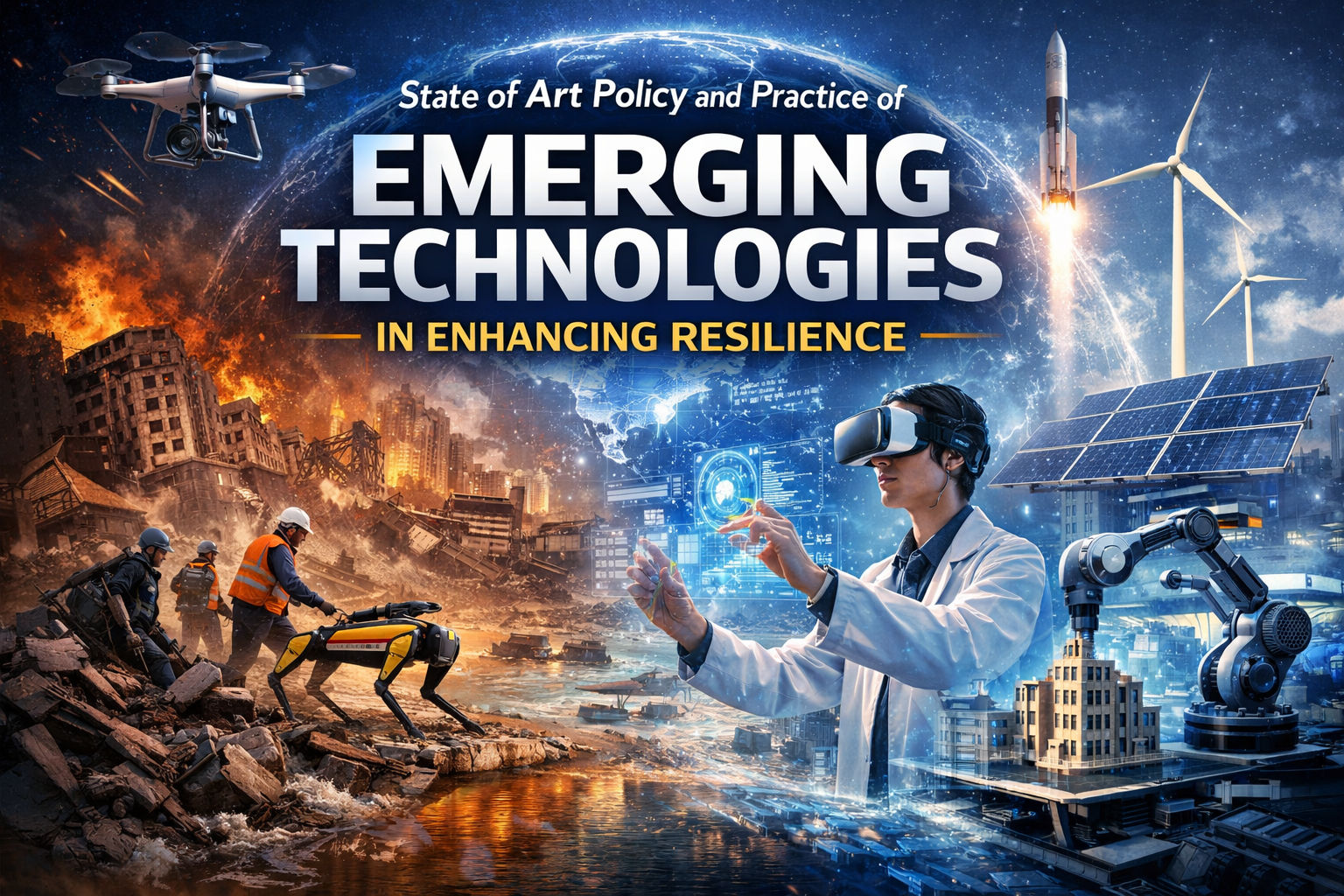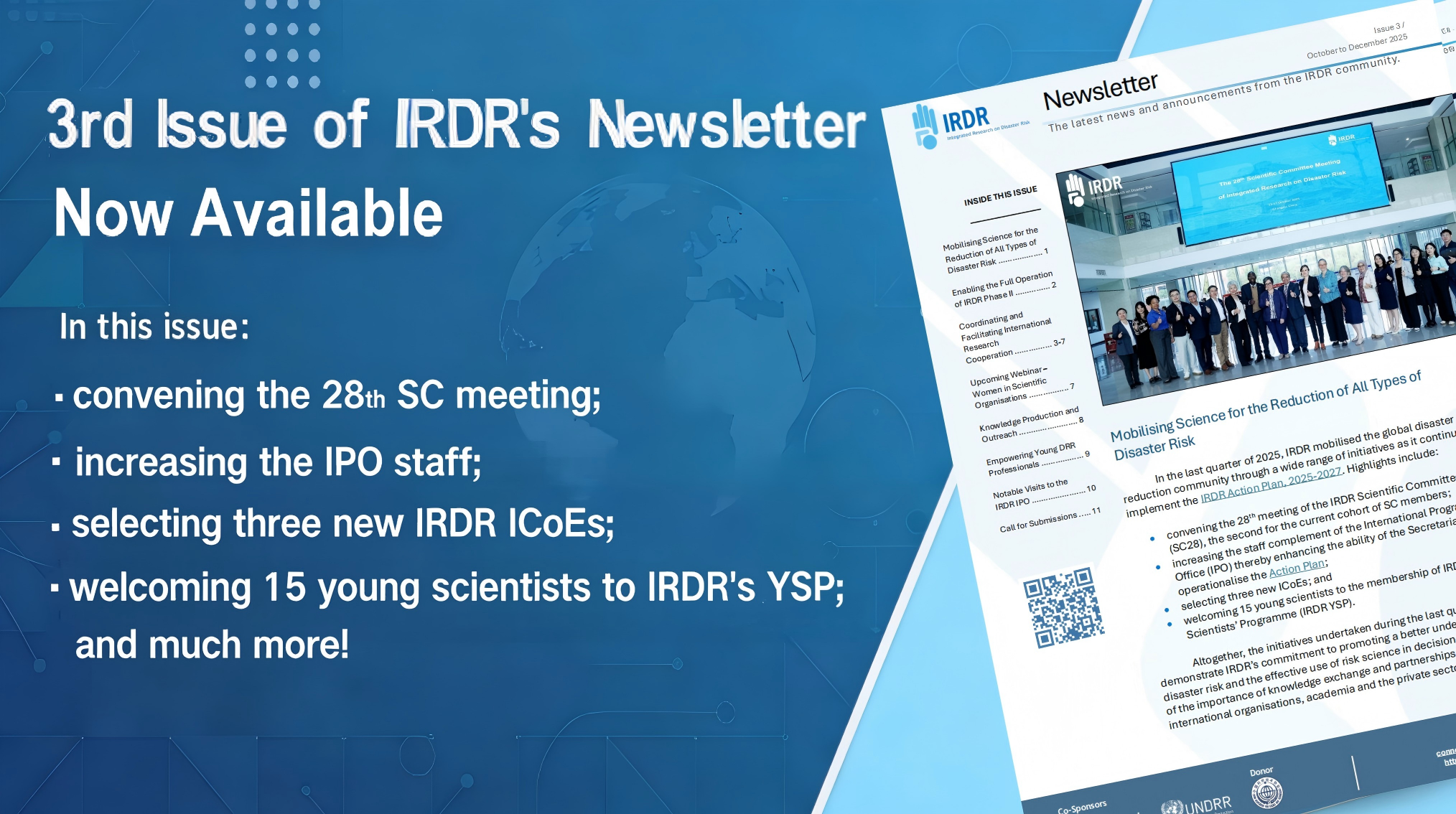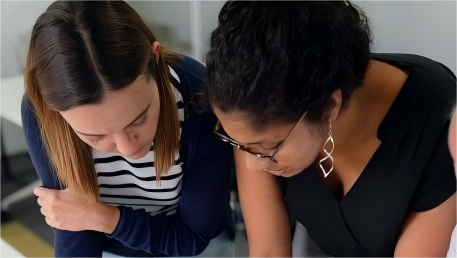We cordially invite you all to attend the Integrated Research on Disaster Risk (IRDR) Public Forum side event at the Third UN World Conference on Disaster Risk Reduction (3rd WCDRR), 14-18 March 2015 in Sendai, Japan.
Event details:
- Session title: Integrated Research on Disaster Risk: the Role of Science in Disaster Risk Reduction
- Date: Sunday, 15 March 2015
- Time: 09:00 a.m. – 12 noon
- Location: Room B104, Tohoku University, Kawauchi-kita Campus
The Integrated Research on Disaster Risk (IRDR) programme is a decade-long integrated research initiative co-sponsored by the International Council for Science (ICSU), the International Social Science Council (ISSC), and the United Nations International Strategy for Disaster Reduction (UNISDR). It is a global, trans-disciplinary and intersectoral research programme to address the major challenges of natural and human-induced environmental hazards. The complexity of the task is such that it requires the full integration of research expertise from the natural, socio-economic, health and engineering sciences, legal practices, and cultural studies, encompassing also areas of inquiry and practice such as policy-making, the role of communications, and public and political perceptions of and responses to risk.
Responding to calls for more effective development and application of scientific research for disaster risk reduction, this session will present on the methodological advances, case studies and results from three of IRDR’s four core projects:
• The Disaster Loss Data (DATA) project studies issues related to the collection, storage, and dissemination of disaster loss data. Recognising the need for standards or protocols to reduce uncertainty in disaster loss data, DATA has established guidelines on event classification and a unified terminology for operating loss databases.
• The Forensic Investigations of Disasters (FORIN) project has developed, disseminated and implemented a radical new approach in disaster research that seeks to identify and explain the underlying causes of disasters, including the growth in magnitude and frequency of very large disaster events. It is intended that this research paradigm will lead to greater in-depth understanding and more enlightened and effective disaster risk reduction practices and policies.
• The Risk Interpretation and Action (RIA) project focuses on the question of how people — both decision-makers and ordinary citizens — make decisions, individually and collectively, in the face of risk. RIA emphasises the need for attention to be paid to how people’s interpretations of risks are shaped by their own experiences, personal feelings and values, cultural beliefs and interpersonal and societal dynamics
All sub-sessions will comment on different innovative ways to address the science-policy interface at different levels (global, regional, national, local). Supported as a pioneering programme by the UNISDR, ICSU and ISSC, IRDR therefore tests the capacity of all actors to confederate their efforts and insights to advance towards higher objectives of disaster risk reduction and resilience.
For more information about our event, download About the IRDR WCDRR Public Forum Session
Additional information and background documents can be found at http://www.wcdrr.org/conference/events/579.






